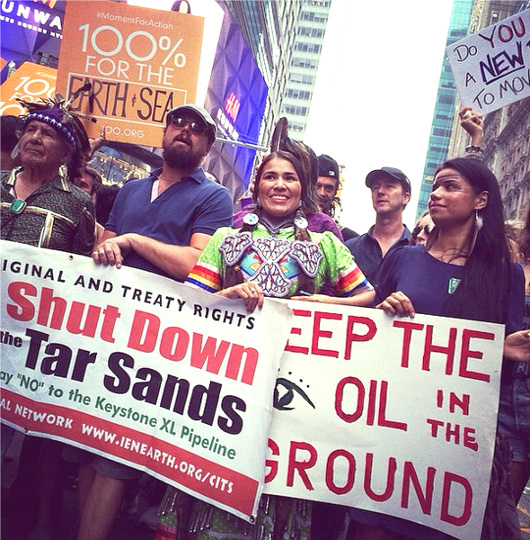
Sustainability has become a hot topic.
It’s a common theme when talking about health, resources, and solutions towards a more ecofriendly future…but what about using it to describe people?
I want to introduce the idea of spiritual ecology. Let’s take all of our favorite issues—ecological conservation, permaculture, globalization, spiritual practice, health and wellness and environmentally conscious initiatives—and combine them together. Collectively, this is spiritual ecology. It is the reintroduction of our connection to the earth in order to live more sustainable lives both mentally and physically.
Spiritual ecology is a balance of preservation and conservation with empathy and action. It starts with a personal journey and expands into an ecological impact.
Through time and technology, we have lost touch with our sacred inner nature. As humans, we fuel a world based on consumerism. We have made advances in industry that allow us to feed an exponentially growing population; we are the only species on earth not regulated by ecological patterns.
That is, yet.
Now, we are seeing the way we use these resources is changing the system. We are starting to influence the brilliantly created balance of earth’s progression. We have altered the world and we must now begin to find its new balance. What an interesting concept…to create balance in a world constantly changing. So how exactly do we find this life balance among work, travel, family, hobbies?
Is it realistic to think we can become more sustainable without making drastic changes to our daily lives?
While actions like biking more, eating less meat, taking shorter showers and recycling are important tips on how to leave a smaller carbon footprint, they do not explain why it fulfills the inner sacredness of our beings. Sustainable steps alone cannot connect to the substance of our souls. They are subtle detachments from the material world. In order to make lasting changes within the environment, we must find this desire inside ourselves. We must become community members rather than community overseers. We must transcend through our knowledge of science and dig deeper to feel the connection to these ecological issues.
By connecting ourselves as the problem and the solution, we become a working part of the system.
This begins by regarding nature with the same emotion as we do our love for family, friends and our own being.
Why does the planet not deserve the same respect and care that we give our own bodies?
It is difficult to explain why we should be selfless with our resources when consumption means competing for survival. This idea alone is the fundamental basis of our problems; we are always competing—against ourselves, each other, the world. Everything is a race to have more.
Let’s redefine our relationship with the planet: we must think “ours,” not “mine” or “theirs.”
This journey must start at the individual level. First, we learn to love ourselves through spiritual practice, divine play, and proper nutrition; then we give this positivity to the natural world. The golden rule, “treat others how you want to be treated,” has never omitted the planet nor respect for yourself.
What we give we also receive.
This is true for ourselves and the planet we occupy.
Maltreatment of the earth’s resources is causing Mother Nature to return the disfavor. Unlike against our human opponents, we don’t stand a chance. Mother Nature will always win, for her evil exists from the very substance of our own. The secret is so does her divinity.
By channeling our inner sacredness, the tasks of sustainability change from a thought to a desire. We begin to pursue a sustainable lifestyle because it completes who we are. By having a healthy relationship with ourselves we can foster and understand a healthy relationship with the earth.
The success of our changes is in relation to a stochastic world. The world and our bodies will always be a work in progress, always adapting. Sustainability is not just an idea. It must be an action. We use this divine sustainability to love the world, empower those around us, and care for the earth. The ecological crisis starts and ends with the personal crises of everyday unsustainable treatment of the individual self. We all have the same responsibility to become—a working, functioning, beautifully placed, crucial—part of this planet.
I like thinking of the world as one large puzzle made of atoms. Each piece relies on the next in order to create the whole. We all must search for where we fit in and how we connect to those around us in order to influence connection within the world.
Always remember to remain humble in the space we occupy. This will create the larger picture.
This is sustainability.
Relephant:
20 Ways to Make Your Urban Heart Green.
Author: Chelsea Carson
Apprentice Editor: Lois Person / Editor: Renée Picard
Photo: Google Images






Read 3 comments and reply